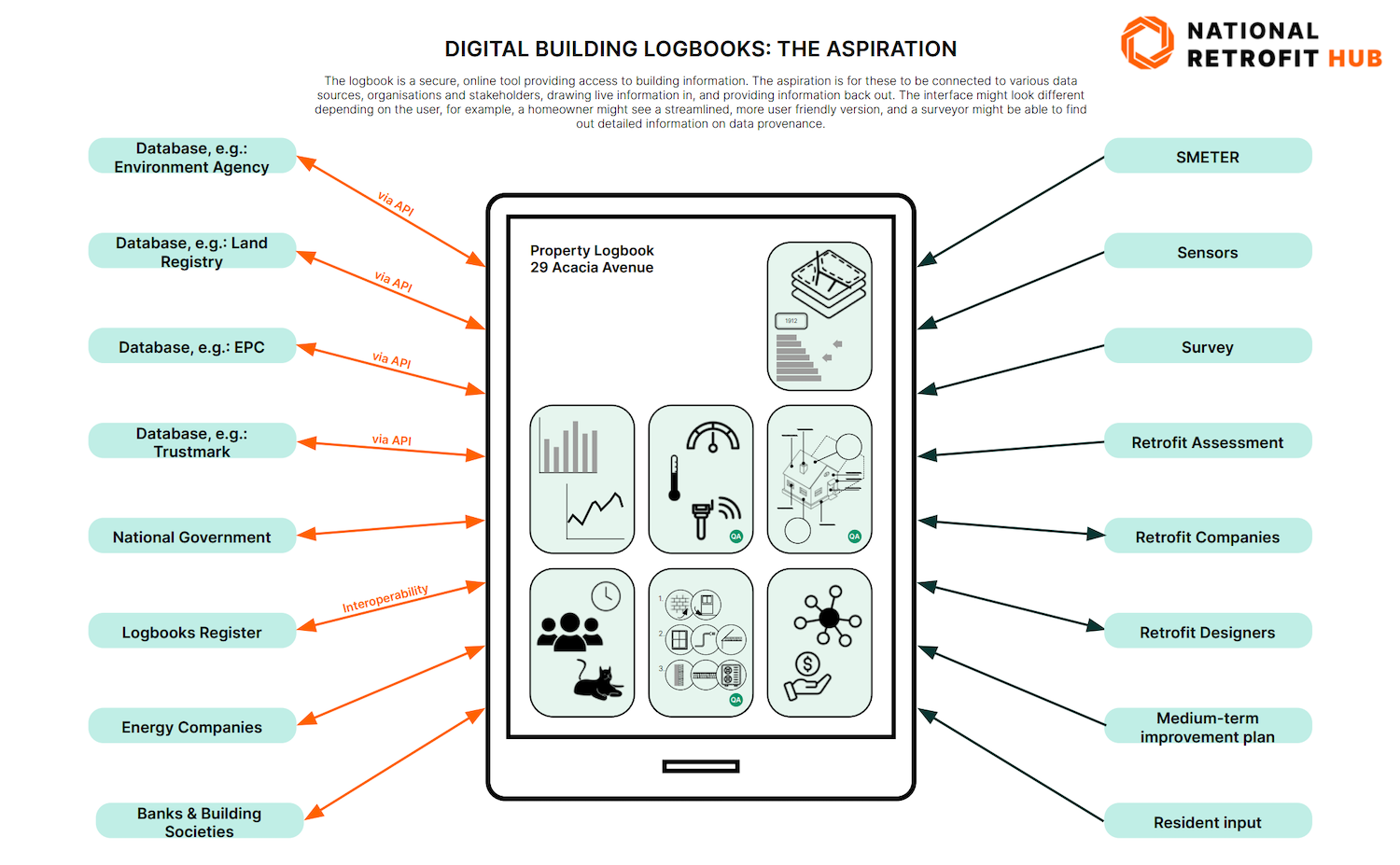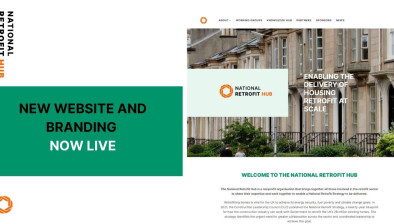NRH launches digital building logbooks guide for nationwide retrofit initiatives

Rachel Owens
The National Retrofit Hub (NRH) has released a comprehensive guide on digital building logbooks, aimed at bolstering retrofit initiatives nationwide.
These logbooks, initially utilised in legal and conveyancing sectors, hold potential to encompass detailed information and retrofit plans for every home, surmounting barriers to scaling up retrofit delivery.
Rachael Owens, NRH co-director, said the new resource – Digital Building Logbooks and Retrofit: An Introduction – represents “a transformative solution to streamline access to vital building data”.
She explained: “By storing retrofit assessments, plans, and performance data, these logbooks could empower stakeholders with comprehensive insights, enabling better resident engagement and informed decision-making.”
In tandem with this guide, the NRH has released a matrix showcasing the current landscape of building data across the UK. This matrix, compiled by NRH Working Group 1 technical lead Louis Daillencourt, offers insights into data ownership, accessibility, and usage, inviting stakeholders to explore collaborative opportunities and address existing data gaps. The original work in this data matrix project was funded by ClimateXChange (CXC), and the Scottish Government.
“We hope this research will be useful to anyone in the industry hoping to better understand which actors host what building and energy data”, said Louis Daillencourt. “We welcome further contributions from organisations hosting or modelling building data to keep enriching this document for the benefit of all in the industry.”

The NRH’s initiative responds to the urgent need for standardised data schemas and enhanced accessibility to building information. By collaborating with industry stakeholders, the NRH aims to bring about standardised data schemas for new logbook sections identified, fostering innovation and collaboration in the retrofit domain.
“Digital building logbooks have the potential to revolutionise resident engagement in retrofit initiatives and provide accurate outcomes data to support finance,” added Rachael.
The NRH’s efforts build upon the groundwork laid by organisations such as the Green Finance Institute (GFI), ClimateXChange (CXC), and the Residential Logbook Association (RLBA). Through consultation with stakeholders such as London Councils, B4NZ, and the RICS, the NRH has compiled key insights and identified the next steps to propel the adoption of digital building logbooks nationwide.
“We are extremely pleased to see the launch of the NRH logbooks explainer document,” remarked Nigel Walley, chair of the Residential Logbooks Association (RLBA). “This report clarifies the interaction between logbooks, renovation plans, and other data products, paving the way for widespread adoption across the property industry.”
Moving forward, the NRH is committed to identifying stakeholders to inform data schemas, addressing ethical and ownership implications, and proposing solutions to manage data provenance and trust.














